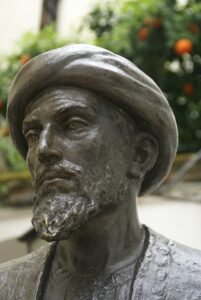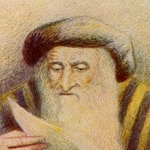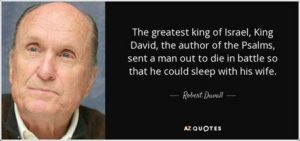Maimonides & Jesus of Nazareth – the Messiah?

Born during the Medieval era in 1135 AD, Moses Ben Maimon came to be known by a single name: Maimonides. In Jewish circles, Maimonides is better known as Rambam, the Rabbi who brought clarity to Jewish Law with some calling him “the second Moses.”
Author of Mishneh Torah, Maimonides’ book is considered to be a monumental Jewish work. It or he is responsible for formulating the 13 principals of Jewish faith.[1]
Messiah or stumbling block? Rabbi Maimonides expressed his view on this question about Jesus of Nazareth as well as thoughts on his lineage, supernatural powers, and provided a comparison to the Messiah prophecies.
Two chapters of Mishneh Torah focused on the Messiah. Chapters 11 and 12 names characteristics that would identify the Messiah (Mashiach) or would disqualify anyone purporting to be the Messiah.[2]
Considered controversial, his statements became a target of the Censor. As late as the 1990s portions of Chapter 11 were relegated only to footnotes and today requires deeper digging under the names Melachim uMilchamot or Mishneh Torah, Kings and Wars.
Explicitly in Chapter 11, Maimonides identified Balaam’s (Bilaam) prophecy as messianic. In a phrase-by-phrase commentary, he interpreted the prophecy as being in reference to Mashiach, Hebrew for Messiah:
“Reference to Mashiach is also made in the portion of Bilaam who prophesies about two anointed kings: the first anointed king, David, who saved Israel from her oppressors; and the final anointed king who will arise from his descendants and save Israel in the end of days. That passage Numbers 24:17-18 relates:
‘I see it, but not now’ – This refers to David;
‘I perceive it, but not in the near future;” – This refers to the Messianic king;
‘A star shall go forth from Jacob’ – This refers to David;
‘and a staff shall arise in Israel’ – This refers to the Messianic king…“
Maimonides addressed the supernatural powers of performing miracles, wonders, and resurrection of the dead without directly mentioning the Gospels nor Jesus of Nazareth (though no one else is said to have raised the dead):
“One should not presume that the Messianic king must work miracles and wonders, bring about new phenomena in the world, resurrect the dead, or perform other similar deeds. This is definitely not true.”
Paying close attention to what the Rabbi said … performing supernatural abilities would not necessarily be a requirement for the Messiah; however, he did not deny that such miracles could be performed by the Messiah.
Going on to describe characteristics that would identify the Messiah when he arrived, the Rabbi expounded:
“If a king will arise from the House of David who diligently contemplates the Torah and observes its mitzvot as prescribed by the Written Law and the Oral Law as David, his ancestor, will compel all of Israel to walk in (the way of the Torah) and rectify the breaches in its observance, and fight the wars of God, we may, with assurance, consider him Mashiach.”
Agreeing with meaning of multiple prophecies, Maimonides agreed with Rabbi Rashi that a key prophetic requirement is that the Messiah must be born in the royal lineage of David. Maimonides added that anyone who denies the Messiah is denying the prophets, Moses, and the Scriptures:
“In the future, the Messianic king will arise and renew the Davidic dynasty, restoring it to its initial sovereignty.”
“Anyone who does not believe in him or does not await his coming, denies not only the statements of the other prophets, but those of the Torah and Moses…
Next, Maimonides described things that would disqualify anyone who might otherwise be viewed as the Messiah. Pointedly called out Jesus of Nazareth by name, the Jewish sage wrote:
“If he did not succeed to this degree or was killed, he surely is not the redeemer promised by the Torah. Rather, he should be considered as all the other proper and complete kings of the Davidic dynasty who died. God caused him to arise only to test the many, as Daniel 11:35 states: ‘And some of the wise men will stumble, to try them, to refine, and to clarify until the appointed time, because the set time is in the future.'”
“Jesus of Nazareth who aspired to be the Mashiach and was executed by the court was also alluded to in Daniel’s prophecies, as ibid. 11:14 states: ‘The vulgar among your people shall exalt themselves in an attempt to fulfill the vision, but they shall stumble.'”
“Can there be a greater stumbling block than Christianity?”
Royal lineage to King David was actually acknowledged by Maimonides when he implied Jesus was one of “all the other proper and complete kings of the Davidic dynasty who died.”[3] Denouncing Jesus, the Rabbi wrote that he and Christianity were a “stumbling block.”[4]
Contrary to another prophecy interpretation of Rabbi Rashi, a split faction of Rabbis in the Talmud believed the Zechariah 12:10 prophecy foretold the Messiah was to be killed. Interestingly, Maimonides remained silent on the prophecy.
Mishneh Torah launched Maimonides into Jewish celebrity status prompting letters sent to him with questions. His response letters, known as Responsa (or Teshuvot), have become additional important texts of Maimonides’ Scriptural interpretations.[5]
One Responsa was to Yeminite Rabbi Jacob al-Fayumi, known as the “Epistle Concerning Yemen.” In the letter, Maimonides regarded Zachariah 6:12 and the parashah of Isaiah 52:13-53:12 as messianic prophecies. He quoted from Isaiah 52:15 and 53:2 foretelling the Messiah could be identified by his origins and his wonders:[6]
“…all the kings of the earth be thrown in terror at the fame of him – their kingdoms be in consternation, and they themselves will be devising whether to oppose him with arms, or to adopt some different course, confessing, in fact their inability to contend with him or ignore his presence and so confounded at the wonders which they will see him work, that they will lay their hands to their mouth; in the words of Isaiah, when describing the manner in which the kings will hearken to him, At him kings will shut their mouth; for that which had not been told them have they seen, and that which they had not heard they have perceived. [Is. 52:15] ”
“What is to be the manner of Messiah’s advent, and where will be the place of his first appearance?
…there shall rise up one of whom none have known before, and the signs and wonders which they shall see performed by him will be the proofs of his true origin; for the Almighty where he declares to us his mind upon this matter, says, ‘Behold a man whose name is the Branch, and he shall branch forth out of his place’ (Zech. Vi. I2). And Isaiah speaks similarly of the time when he will appear, without his father or mother or family being known, He came up before him, and as a root out of the dry earth [Is 53:2], etc.”
All four Gospels are consistent with the Messiah characteristics defined by Maimonides.
Was Jesus of Nazareth a fulfillment of the Messiah prophecies or merely a stumbling block test sent by God?
Updated December 31, 2023.
This work is licensed under a Creative Commons Attribution-NonCommercial-NoDerivatives 4.0 International License.
REFERENCES:
[1] Maimonides. Mishneh Torah. Jewish year 4937 (1177 AD). “The Rambam’s Mishneh Torah.” <http://www.chabad.org/library/article_cdo/aid/682956/jewish/Mishneh-Torah.htm> Rich, Tracey R. “Jewish Beliefs.” JewFAQ.org. n.d. <http://www.jewfaq.org/beliefs.htm> “Moses Ben Maimon.” Jewish Encyclopedia. 2011. <http://www.jewishencyclopedia.com/articles/11124-moses-ben-maimon> Furst, Rachel. “The Mishneh Torah.” MyJewishLearning.com. 2010. <http://mobile.myjewishlearning.com/texts/Rabbinics/Halakhah/Medieval/Mishneh_Torah.shtml> Seeskin, Kenneth. “Maimonides.” Stanford Encyclopedia of Philosophy. 2006. revised 2017. <https://plato.stanford.edu/entries/maimonides> Maimonides statue. Wikimedia Commons. image. n.d. <https://commons.wikimedia.org/wiki/File:Maimonides_statue_-_Cordoba.jpg>
[2] Maimonides, Moses. Mishneh Torah. Ed. Yechezkal Shimon Gutfreund, Brooklyn, NY: Sichos in English. “The Law Concerning Moshiach.” Kesser.org. n.d. <http://www.kesser.org/moshiach/rambam.html#SIE> Maimonides. Mishneh Torah. “uMilchamot, the Laws of Kings and Their War.” 2015. <https://www.chabad.org/library/article_cdo/aid/1188343/jewish/Melachim-uMilchamot.htm> Maimonides. Mishneh Torah. Sefaria.org. 2023. “Mishneh Torah, Kings and Wars.” <https://www.sefaria.org/Mishneh_Torah,_Kings_and_Wars?tab=contents>
[3] Josephus, Flavius. Against Apion. Book 1 #6-7. The Complete Works of Josephus. <http://books.google.com/books?id=e0dAAAAAMAAJ&printsec=frontcover&source=gbs_ge_summary_r&cad=0#v=onepage&q&f=false>
[4] Mangel, Nissen. “Responsa.” Publisher: Kehot Publication Society. 2008. Chabad.org. 2014. <http://www.chabad.org/library/article_cdo/aid/107783/jewish/Responsa.htm>
[5] Mangel.“Responsa.”
[6] Maimonides. “Letter to the South (Yemen)”. p374. Neubauer and Driver. The Fifty-third Chapter of Isaiah According to the Jewish Interpreters <https://books.google.com/books?id=YxdbAAAAQAAJ&pg=PP1&hl=en#v=onepage&q=advent&f=false> CR “Iggerot HaRambam, Iggeret Teiman.” Sefaria.org. responsa. n.d. <https://www.sefaria.org/Iggerot_HaRambam?tab=versions> “Responsa.” Chabad.org. “The Epistle Concerning Yemen.”n.d.<https://www.chabad.org/library/article_cdo/aid/107783/jewish/Responsa.htm>


 Three of David’s brothers were fighting in Israel’s army supported by their father who routinely sent David to them with supplies. During one visit, David was astonished to see Israel’s army afraid of an ace giant Philistine warrior named Goliath who challenged and taunted Israel’s army daily.
Three of David’s brothers were fighting in Israel’s army supported by their father who routinely sent David to them with supplies. During one visit, David was astonished to see Israel’s army afraid of an ace giant Philistine warrior named Goliath who challenged and taunted Israel’s army daily. Uriah was summoned from the battlefield at the behest of David under the pretense of earning a well-deserved leave from duty. The true reason was to give Bath-Sheba an opportunity to have marital relations with her husband to legitimize her pregnancy.
Uriah was summoned from the battlefield at the behest of David under the pretense of earning a well-deserved leave from duty. The true reason was to give Bath-Sheba an opportunity to have marital relations with her husband to legitimize her pregnancy.